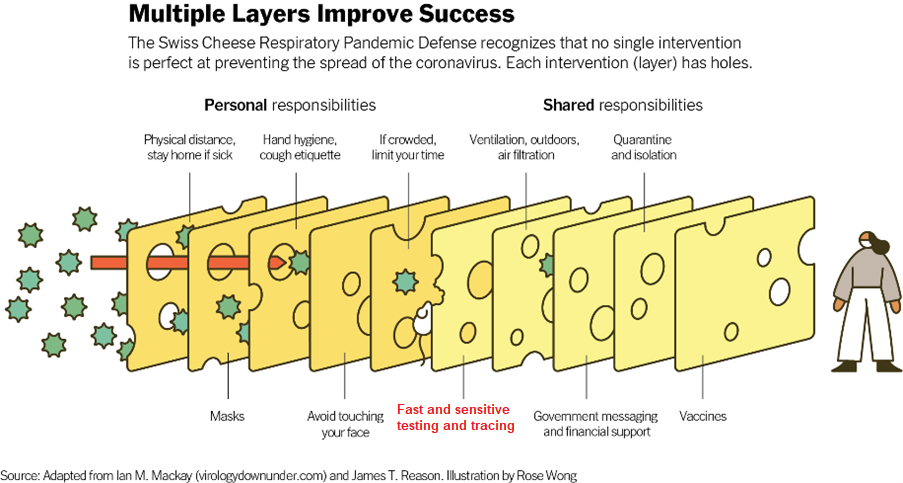
by InScience | Apr 8, 2022 | News
Stuff article points to an issue with underreporting of Covid cases – my response
[Click here to read the original Stuff.co.nz news article]
It is with interest that I read this news article that cites 50 million RATs distributed throughout NZ but only 1 million results reported and added to that two rather misleading comments on the performance of NZ MoH approved Covid 19 rapid antigen tests.
The Stuff article quotes Rapid antigen tests with as low as 50% accuracy which is misleading and untrue if used properly. This can only be due to poor sample collection and incorrect procedure primarily by those self testing and such a statement reduces peoples confidence. It can be fiddly and complex and many don’t understand the significance of each required process steps, the need to follow the directions and to process the test with care and attention. The range of sensitivities upwards from 86 % sensitivity, the greater than 90% accuracy is very achievable in a Rapid antigen test when performed by someone who knows what they are doing.
Stuff article points to underreporting of Covid cases as an issue although I do understand how this happens and would hasten to add that at this stage of the pandemic in NZ I don’t see the weight of importance put on that.
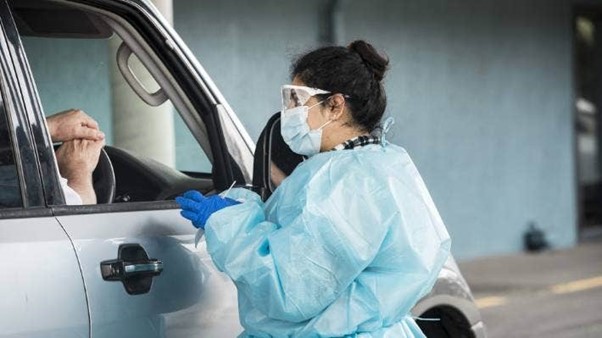
The stuff article also quotes those that say that rapid antigen tests have a high incidence of false positives and false negatives. Lets explore that. It isn’t a false negative if the person has covid but isn’t infectious. That may be a contentious statement but it is my opinion when taking into account the purpose of doing the test. Yes, false negatives are possible in any screen if the sample isn’t properly collected or is inadequate giving more fuel to my comment that you must follow the instructions or use a RAT with the simplest collection method.
False positives are a lot less likely in fact I would question its prevalence and say rare. False positives resulting from a cross reaction with another virus is very low with the specificity in the high 98-99 % would indicate that this is less likely to be a false positive. False positive because the viral load is too low is more likely the source of the comment but RAT is used to detect when there is a viral load high enough to be infectious.
Next comment quoted I take issue with is the claim that Rapid antigen tests should be stopped and replaced by PCR when in fact they are there to achieve different things. We don’t need to diagnose Covid 19 now but more importantly we need to know if someone is infectious. PCR is diagnostic meaning does the person have Covid 19 with the high potential for a false positive as it will also call positive and diagnose as positive someone that has had Covid 19 but recovered and past any infectious stage.
RATS are serving a great purpose and one for which they are intended when our communities in a medium to high incidence of covid infections it is used for determining those that are infectious or have enough viral load that they are capable of infecting others and should therefore isolate to avoid passing it on to others. This has been well demonstrated and continues to serve a great purpose for workplaces where business continuity is critical for many and business is threatened if already strained employees numbers are further reduced by the virus spreading among workers. All approved RATS in NZ are “fit for purpose having met performance criteria for specificity, sensitivity and accuracy.Some RAT brands are more complex to perform and this increases the potential for inaccuracy however there is one that is extremely simple providing more likely accuracy in the hands of inexperienced people in a variety of challenging environments.
What to consider to achieve good accuracy, ability to trust a RAT result and get best value for your business?
- Train your workers how to perform the collection and test properly
- Choose the simplest method/test (ask us about the Pen Test)
- Perform regular tests at least twice a week in low to medium incidence and daily when you have positive cases close in the working community
Trust a positive ! Keep checking negatives especially if symptomatic to determine if and when you may become infectious and able to transmit or pass on the virus to others. If positive by RAT- Isolate till negative
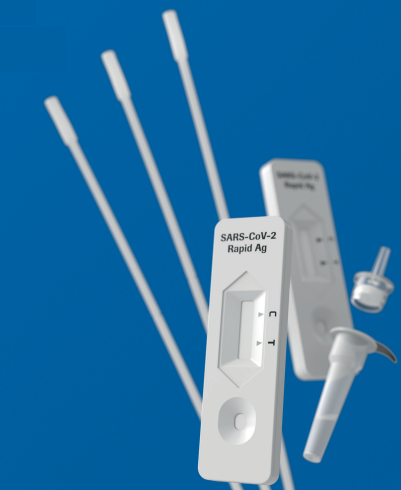
by InScience | Jan 10, 2022 | News
Key information about Rapid Antigen Testing
Here’s a handy infographic to summarise the main points about the Roche RAT test. You can find out more about the RAT test on this page, and when you’re ready to make a purchase, take a look at our shop page.
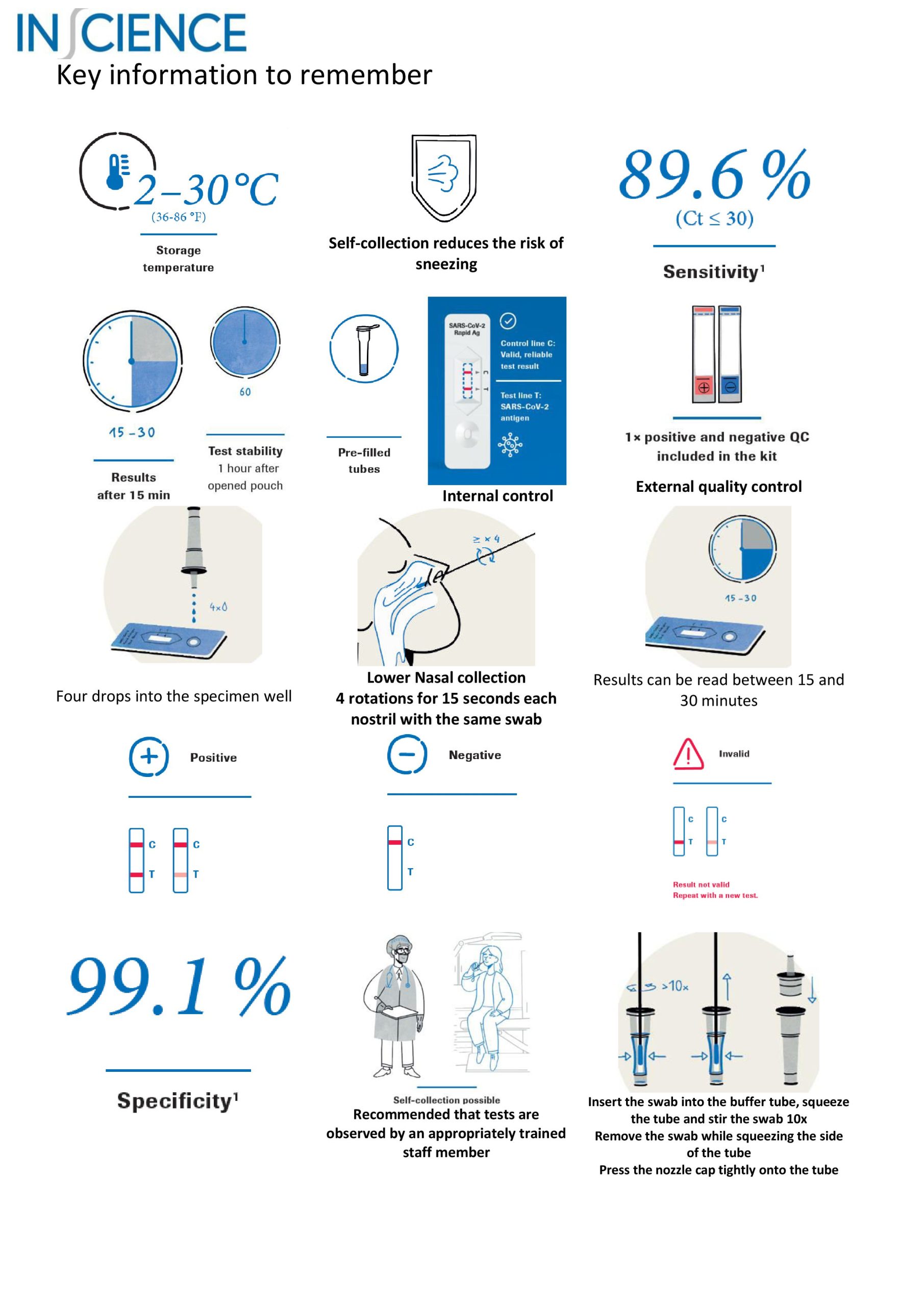

by InScience | Jan 10, 2022 | News
The legacy of cannabis legalisation
This link relates to a late night happenstance that made for an interesting watch. Main interest for Ann-louise was cannabis as a gateway drug, the emergence of dangerous edibles since cannabis has been legalised in Colorado and a huge increase in psychosis and psychotic episodes after legalisation largely attributed to higher THC dose “dabbing” or “dabs”. Interesting also as we had Colorado held up as a positive model during the cannabis legalisation debate in New Zealand. Recommended viewing!
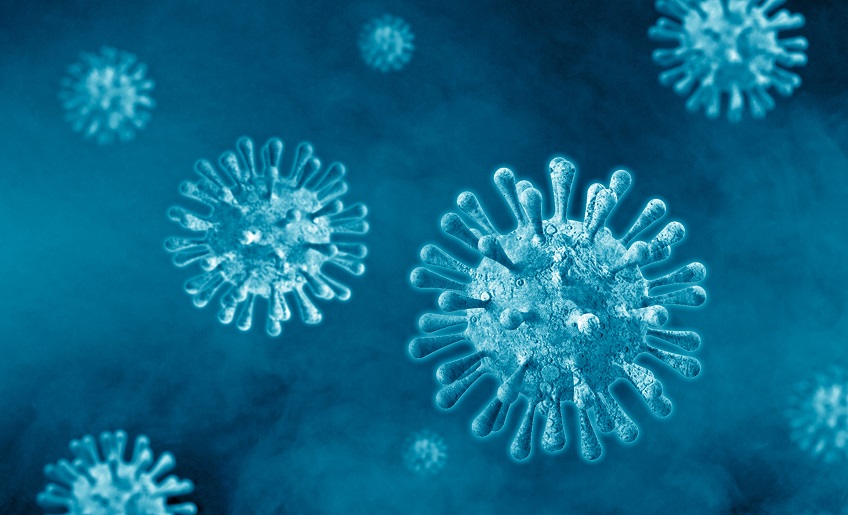
by InScience | Nov 17, 2021 | News
Key elements — testing isn’t just for people who don’t want or can’t get the vaccine. It’s another tool that can be applied for everyone initially in the workplace but also when possible in the community to identify risk, prevent infection transmission and stay as safe as possible so together we can defeat COVID-19 as fast as possible!
Inscience have secured MOH approved COVID-19 Antigen tests that are already in use in NZ, are accurate, tested and approved option for rapid testing. This type of Covid Test will soon be approved for use and delivery to and for your workplace by trained testers able to understand, guide and meet your testing needs. Learn more about how to purchase and implement serial rapid testing using our Ministry of Health authorized tests.
It’s clear that our personal choices have a significant impact on the greater scheme of things, which is perhaps no more true than when it comes to COVID-19 vaccines and COVID testing.
Unfortunately, despite the fact that our government have made vaccines widely available and have continuously encouraged people to get vaccinated many choose not to or some cannot get the vaccination for health reasons. The people who are unvaccinated are at risk of more serious illness and more likely to have poor outcomes and those that are vaccinated have lower the chances of contracting the virus, and in case of infection, decrease the chances of serious illness. WE encourage those with concerns over whether too get vaccinated to search out credible advise on this.
Whether people are vaccinated or not, it’s important to remember that we all need to take steps to help manage our collective lives alongside COVID-19. To do so, an extremely valuable measure in our battle to control ongoing spread of Covid infection is to COVID test on a regular basis to protect our people, their whanau and wider community. Identifying risk and taking action to reduce or eliminate that risk has long been a part of a NZ workplace and surveillance using Covid 19 rapid antigen testing will be available soon to identify covid infection and risk.
By COVID testing on a regular basis, even when asymptomatic, you are limiting the extent to which the virus can spread to others.
Scale matters. Imagine for a moment, a future where people were tested on a regular routine basis and could then immediately self-isolated if they were determined infectious/contagious with COVID-19. Studies estimate and state that regular testing every five days can lead to a 40% reduction in the number of infections – and those estimates are based on a more lengthy 24-hour PCR processing time of a result.
Rapid antigen testing frequency and who should bbe tested needs careful consideration and we can help you determine this and how it may work for your workplace(s)
Rapid antigen tests will be available from Inscience, and provided as a testing service in your workplace by Drugwise, local to you, can provide accurate results in just 15 minutes and up to 45 results per hour and can provide peace of mind to a worker and the workplace of any risk from Covid 19 and you can arrange for followup action to self-isolate. Combining frequent testing, vaccination, and our routine applicable measures such as mask wearing, hand washing and physical distancing is the answer to beating the COVID-19 pandemic once and for all.
Order your information pack today.
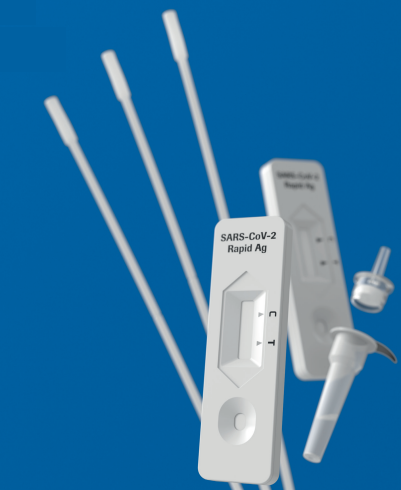
by InScience | Nov 17, 2021 | News
Leading rapid antigen testing and antibody testing products – InScience is renowned for sourcing the highest quality, economic and best performing on site test solutions.
Two options NZ Govt/MOH approved for wider workplace use –
- SARS-CoV-2 Rapid Antigen Test Nasal – SD Biosensor Rapid Antigen Nasal test from world leading diagnostics giant, Roche Diagnostics. SD Biosensor is one of only 3 approved for use in NZ to date following an extensive study conducted by ESR – Click here for more info
- Innoscreen Rapid Diagnostic test – Australia’s leading Covid rapid antigen nasal test, TGA approved and Aussie made. Two giants in Rapid antigen testing to provide superior testing options. – Click here for more info
- More test choices coming pending Medsafe product approval
*What does this word or process mean? – FAQ Covid RAT
InScience training for application and use of Covid rapid antigen testing recommended and available from 22nd November 2021
Professional testing services using these world’s best rapid antigen tests available for your workplace – enquire now or call 0800 SALIVA (725 482)

by InScience | Nov 16, 2021 | News
Vaccines are available to anyone over the age of 12 who wants it in the New Zealand and soon available for those 5-12 years old along with booster shots for those who were vaccinated 6 months or longer ago. So why should we consider, call for and use COVID testing?
Here’s why:
- Vaccines are great! While they’re primarily designed to protect you from infection (and if infected, reduce the severity of disease), they also have secondary effects of helping reduce how much you spread disease if you are infected.
- While many New Zealanders are now part or fully vaccinated, there’s still a ways to go AND the disease is still spreading in the community and not just an Auckland issue.
- Rapid tests are an easy way of knowing if you might potentially be able to spread the disease if you happen to contract it. You can contract Covid if vaccinated but are less likely to get very sick or need hospital care. Less complications or sickness doesn’t stop the vaccinated person from passing covid to others and especially the delta variant. Those who are not vaccinated are at risk of more severe effects of infection and so testing for active infection and detecting this as early as possible is even more crucial to spreading infection and early start to treatment to reduce severe effects of Covid.
- Rapid antigen testing is rapid and accurate in detecting active Covid infections especially important in the vaccinated who may not display many symptoms ie asymptomatic. They may be largely unaware of when theu are infectious to others
- Testing is just one component of a Swiss cheese model of COVID-19 mitigation: nothing is perfect, but a combination of strategies is the safest, best possible option
